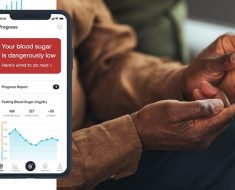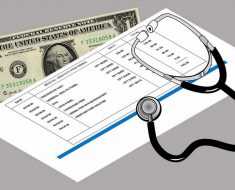Illustration: Sarah Grillo/Axios
The scientific race for a coronavirus vaccine is moving at record-shattering speed. Making the most of that work — translating a successful clinical product into real-world progress — will require some patience.
Why it matters: If we get a vaccine relatively soon, the next big challenge will be balancing the need to get it into people's hands with the need to keep working on other solutions that might prove more effective.
Where it stands: Eight potential vaccines are in late-stage clinical trials. The first one could be submitted for FDA review as early as October or November, and several more could follow within just a few months.
- The FDA has already laid out its standards for potential vaccines: They have to be safe, and they have to reduce the chance of moderate to severe infection by at least 50%.
- That’s a relatively modest bar, but experts say it’s an appropriate one, especially in an emergency.
But the fear is that the understandable desire to get a safe, effective vaccine into people’s veins as fast as possible could make a better or more targeted vaccine harder to come by.
- “My concern is that you want to get it right the first time, whatever you [authorize] first, because it’s really going to change the landscape,” said Natalie Dean, a biostatistician at the University of Florida who specializes in the design of clinical trials for vaccines.
How it works: We know the coronavirus affects different people in different ways. So, ideally, we’d want to know how well each vaccine works in people with the most significant risk factors.
- “We may not have a lot of that coming out of these trials. They’re certainly not powered to address these subgroup-specific effects,” Dean said.
- “If we don't have adequate data in the greater-than-65-year-old group, then the greater-than-65-year-old person shouldn't get this vaccine, which would be a shame because they're the ones who are most likely to die from this infection,” vaccine expert Paul Offit said in a recent conversation with scientist Eric Topol.
- The FDA will be looking for evidence of how well each vaccine works in the overall population, so that’s the question their clinical trials are set up to answer.
What they’re saying: One of the most important things regulators and vaccine developers can do right now, experts said, is to generate as much data as possible while clinical trials are still under way.
- They won’t have another chance to run more clinical trials just to study how the vaccines work for narrower groups of people. So whatever questions we need to answer in the future, they’ll have to be answered with today’s data.
- “This is our chance to learn whether something works,” Dean said. “You can’t go backwards.”
Yes, but: Pfizer and Moderna, which are developing two of the leading candidates, have each signed up some 30,000 people for their trials, but have said they’ll do interim analyses with results from fewer than 50 people.
- If those results are strong enough, the trials could end early.
- And once there’s a single effective vaccine, it’s harder to maintain other placebo-controlled studies. Researchers will face an ethical dilemma about whether to keep giving people a placebo, Dean said, and people are less likely to sign up for a trial, and risk a placebo, if they think they can just get a vaccine from their doctor.
The other side: The regulatory process, along with some of the logistical hurdles that make vaccine distribution so difficult, can help with some of this.
- Only a handful of doses will be ready once the first vaccine is authorized. If the second vaccine comes through a short time later and turns out to be wildly more effective, there will be time to adjust.
- Several of the leading candidates require two shots, and some must be stored at temperatures as low as -20 degrees Fahrenheit. A vaccine that’s moderately less effective but also less fussy might be worth the trade-off, at least for some patients.
The big picture: These are all issues that need to be managed within a historically fast process; they are not indictments of moving fast. They are in many ways good problems to have.
- “Wouldn’t it be great if we’re in a position if we have, say, 2-5 safe and effective vaccines?” said Dan Barouch, the director of Harvard’s Center for Virology and Vaccine Research. "If more than one vaccine shows safety and efficacy, then we actually would welcome that result."
Source: Read Full Article





